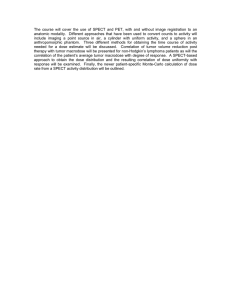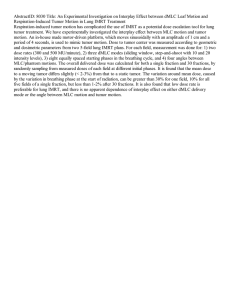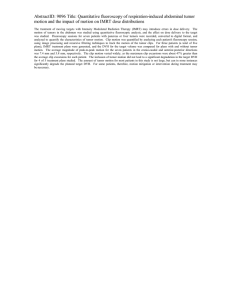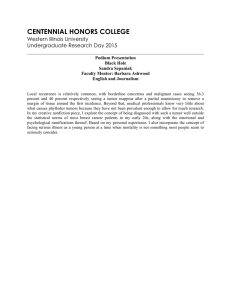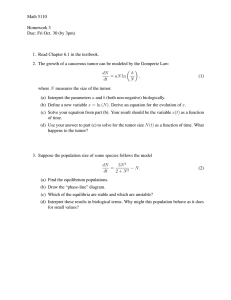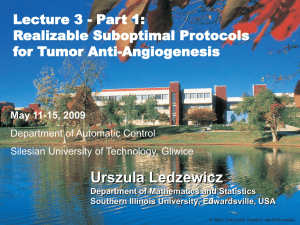AbstractID: 8931 Title: Inconsistency between the Generalized Equivalent Uniform Dose
advertisement
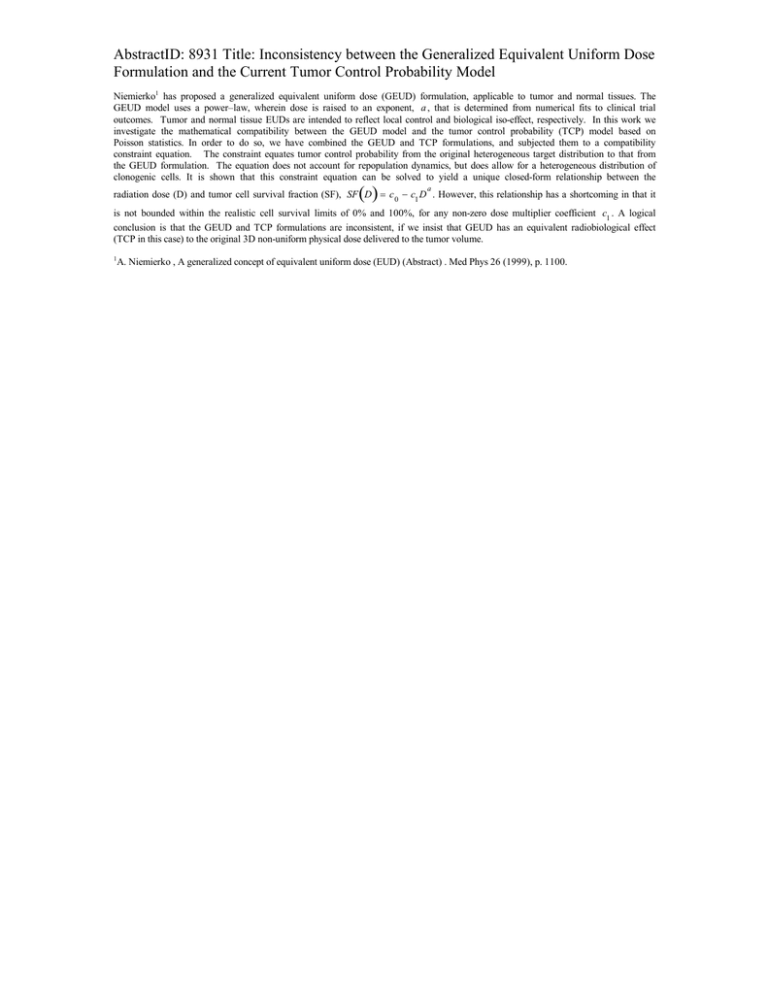
AbstractID: 8931 Title: Inconsistency between the Generalized Equivalent Uniform Dose Formulation and the Current Tumor Control Probability Model Niemierko1 has proposed a generalized equivalent uniform dose (GEUD) formulation, applicable to tumor and normal tissues. The GEUD model uses a power–law, wherein dose is raised to an exponent, a , that is determined from numerical fits to clinical trial outcomes. Tumor and normal tissue EUDs are intended to reflect local control and biological iso-effect, respectively. In this work we investigate the mathematical compatibility between the GEUD model and the tumor control probability (TCP) model based on Poisson statistics. In order to do so, we have combined the GEUD and TCP formulations, and subjected them to a compatibility constraint equation. The constraint equates tumor control probability from the original heterogeneous target distribution to that from the GEUD formulation. The equation does not account for repopulation dynamics, but does allow for a heterogeneous distribution of clonogenic cells. It is shown that this constraint equation can be solved to yield a unique closed-form relationship between the () a radiation dose (D) and tumor cell survival fraction (SF), SF D = c 0 − c1 D . However, this relationship has a shortcoming in that it is not bounded within the realistic cell survival limits of 0% and 100%, for any non-zero dose multiplier coefficient c1 . A logical conclusion is that the GEUD and TCP formulations are inconsistent, if we insist that GEUD has an equivalent radiobiological effect (TCP in this case) to the original 3D non-uniform physical dose delivered to the tumor volume. 1 A. Niemierko , A generalized concept of equivalent uniform dose (EUD) (Abstract) . Med Phys 26 (1999), p. 1100.
